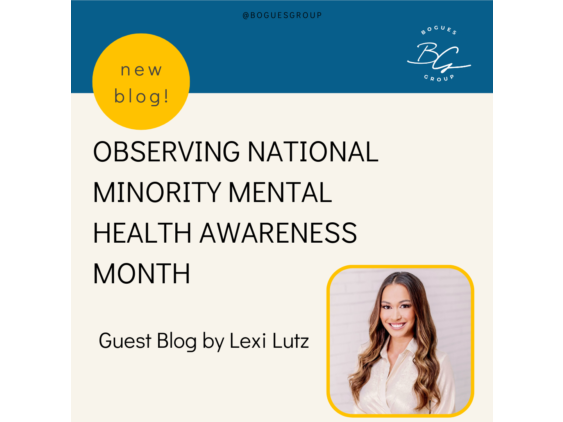Blog by Lexi Lutz
Our minds and bodies are intrinsically connected, so it should come as no surprise that our mental health can have significant effects on physical health. Good mental health can positively affect your physical health. Conversely, poor mental health can negatively affect your physical health. Challenges in accessing mental health care exist for everyone, which include cost, lack of insurance coverage, and stigma. Unfortunately, minority groups face unique challenges in accessing mental health care due to factors that are unique to minority groups, such as inability to find providers from one’s own racial or ethnic group, and stress caused by experiencing/witnessing racial discrimination or racial violence.
For some people, particularly in some minority groups, it is important to see a mental health care provider who is from their own racial or ethnic group. This can help to ensure that the provider can understands and empathize with the patient’s cultural background and experiences. It can be difficult, however, to find providers who are from minority groups in certain locations, especially in rural areas.
Additionally, a person who experiences or witnesses racial discrimination or racial violence can create mental health problems due to stress or trauma created by such situations. Minority groups are more likely to experience and witness racial discrimination or racial violence, putting minorities at higher risk for mental health issues caused by these unfortunate experiences.
Mental health care challenges are not exclusive to minority groups; however, minorities do face risk of unique factors that could create challenges to receiving mental health care that tend to effect minority groups more so than non-minorities. Support organizations that are working to improve access to mental health care for people from racial and ethnic minority groups include: National Alliance on Mental Illness (NAMI) (https://www.nami.org/) and Mental Health America; (https://www.mentalhealthamerica.net/).

